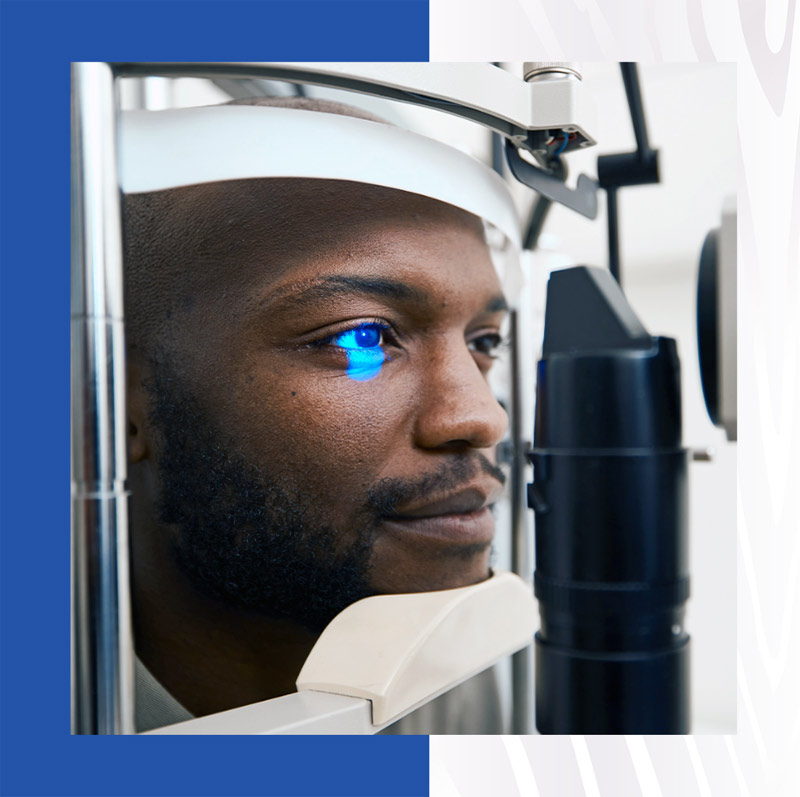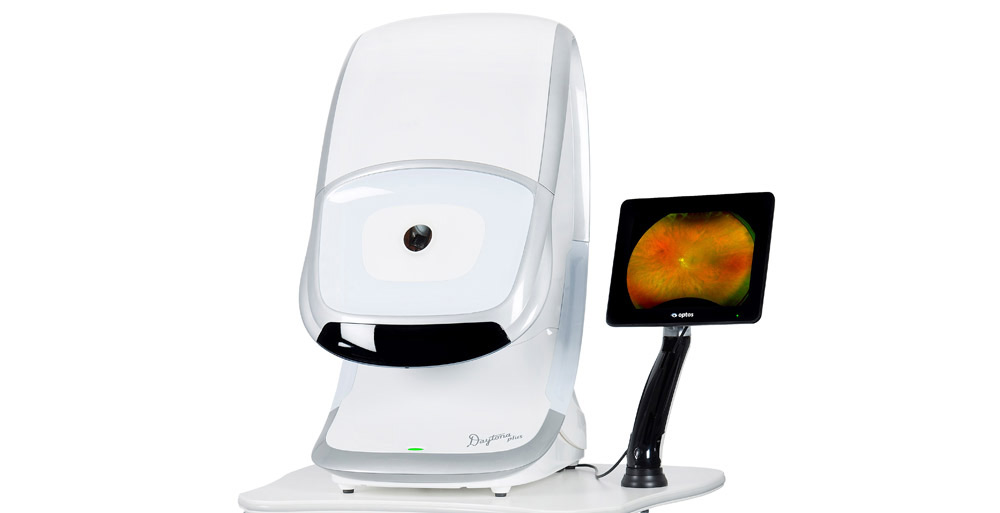Comprehensive Eye Exam in Pembroke Pines
Our comprehensive eye exams in Pembroke Pines assess your overall eye health as well as vision needs. Schedule your eye examination today.
Many eye diseases have little to no symptoms in the early stages. A comprehensive eye exam is a key step in detecting and preventing eye issues. Additionally, your eyes speak volumes about the state of your health, and a routine eye exam may help reveal underlying health conditions of which you may not be aware.
Vision Screening vs. a Comprehensive Eye Exam
Vision screenings can identify some eye conditions, but unfortunately, many problems (sometimes sight-threatening) can be missed during a screening.

A comprehensive eye exam evaluates both your eye health as well as your vision clarity. After your eye exam in Pembroke Pines, our eye doctor will recommend the next steps, such as dry eye treatment, prescription vision correction, or other eye care options as needed.
Our comprehensive eye exam can identify conditions such as:
- Eye diseases such as glaucoma and diabetic retinopathy.
- Nearsightedness, farsightedness, and astigmatism.
- Issues with focusing, such as presbyopia.
- Strabismus (crossed eyes), amblyopia (lazy eye), and binocular vision.
- Other health conditions such as high blood pressure or high cholesterol.
Comprehensive Eye Exam Tests
At your eye exam, your doctor will conduct a variety of eye tests to evaluate your eye health and check your vision. Tests may include:
- Visual acuity test to assess the sharpness of your vision (most often using the “Big E” chart, called the Snellen chart).
- Refraction tests to determine your eyeglass prescription (an instrument called a phoropter will be used in front of your eyes to test a series of lens choices).
- Slit lamp test to detect common eye diseases and conditions, giving your doctor a view of your eye’s structure to assess its health.
- Cover test to check for strabismus or binocular vision problems.
- Glaucoma test (tonometry) to measure the pressure within your eyes.
- Visual field test to determine peripheral vision issues and blind spots.
- Dilation of the pupils and ophthalmoscopy to examine the health of the optic nerve, retina, and blood vessels.
- Retinal photography and macular health screening. Our eye doctors also highly recommend routine monitoring and analysis of the health of the back of the eye through tests that may not be covered by your vision plan. These photos allow us to provide the highest level of care. With these images, we can watch for subtle changes and, most importantly, diagnose many conditions early to prevent future vision loss.

How Often Do You Need a Comprehensive Eye Exam?
If you wear eyeglasses or contact lenses, the American Optometric Association recommends you see an optometrist for a comprehensive eye exam every year. Annual eye exams may also be recommended if you have other conditions, such as diabetes or high blood pressure, that may affect your vision.
At The Eye Center, your optometric physician will recommend how often you should visit us for comprehensive eye exams based on your health history, vision, and eye health needs to ensure you receive the best care for your needs.
Schedule your eye examination today at our Pembroke Pines eye care center.
